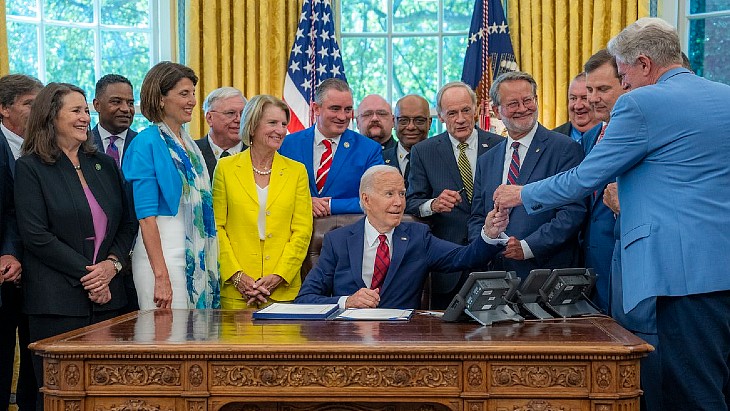UK regulators consider application of AI in nuclear sector
.jpg)
"AI is starting to enter the nuclear sector with substantial investment," the regulators said in their concluding report. "The industry is requesting engagement with regulators to understand our regulatory views. ONR horizon scanning activities have also identified AI as a key trend. At present, there is limited established relevant good practice that can be used as a benchmark for regulating AI."
AI could be used in the nuclear industry to simulate reactor behaviour and inform reactor design, performance, safety and operation. This technology could have significant opportunities and also challenges for the sector, but there is limited relevant good practice currently available to inform regulators.
To address this, ONR convened an expert panel on the regulation of AI, which identified two applications of AI in the nuclear sector that could be further explored in a regulatory sandbox. These were: the application of AI to ensure appropriate and targeted plant maintenance; and real-time use of AI to facilitate the safe operability of robots in constrained spaces.
Regulatory sandboxing allows industry to explore with regulators how innovation proposals can progress to deployment.
The sandboxing process involved sprint workshops to consider the key aspects associated with the deployment of AI in the two problem/opportunity statements and the associated mock safety, security and environment case structures. These key aspects were then prioritised into four deep dive topics for each of the two AI applications and explored through regulatory sandboxing sessions.
The sandbox pilot - the first applied to nuclear regulation anywhere in the world - found that the benefits of AI should be clearly articulated, particularly in comparison to traditional technologies, and any risks understood and managed through robust arrangements. Understanding the reliability of AI systems is also important.
Other key recommendations summarised in the report included: phasing the deployment of AI systems to build confidence and experience; evaluating whether a principles-based approach to regulation is preferred, to take into account differing considerations for each potential application of AI; assuming any existing training data is no longer adequate when an AI system is transferred to a new operation or phase, and providing a hazard analysis for each potential deployment mode; understanding the complexity of the human/system interaction; and developing skills and guidance through accessing AI expertise, reflecting operational experience, and promoting behaviours that support a challenging safety, security and environmental culture.
The ONR said outputs from the sandbox pilot are being fed into existing work on AI within the UK's nuclear sector, as well as being shared with the wider regulatory community.
The project has helped establish the concept of an international regulatory sandbox, which ONR and the Environment Agency are exploring with the OCED Nuclear Energy Agency. ONR is also working with the US Nuclear Regulatory Commission and the Canadian Nuclear Safety Commission to write a 'principles paper' on the regulation of AI.
"This work will help inform the development of a universal regulatory approach to AI, including guidance and relevant good practice," ONR said.
"The sandbox pilot has given us the opportunity to develop a new tool to encourage innovative solutions without compromising safety and security or our regulatory independence," said Tom Eagleton, ONR's Head of Innovation. "This would not have been possible without a cross-regulatory effort and we look forward to continuing our collaboration with the Environment Agency to ensure a unified approach to innovation."









_88592.jpg)
_66488.jpg)

